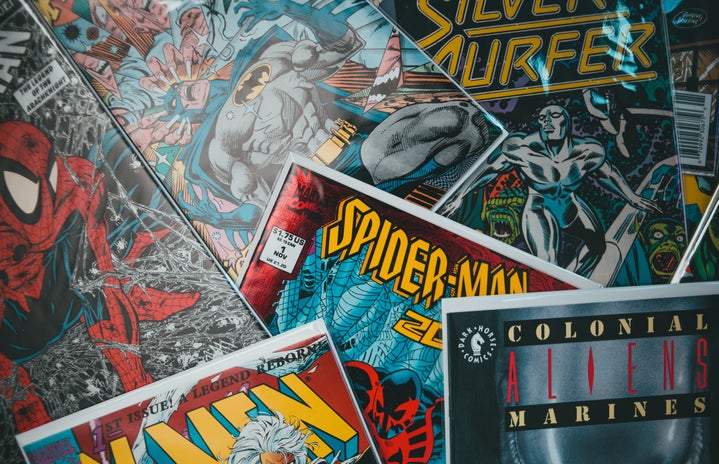Ever since Marvel Studios released the acclaimed Iron Man (2008), the superhero genre has been on the rise. With the success of the franchise, large corporations such as Disney and Sony have rediscovered the superhero genre that could appeal to new audiences and bring in large profits. There are a plethora of superhero comics, shows, and movies in both the live-action and animated world. Recently, before the COVID-19 pandemic hit, Marvel Studios was topping box office charts with the release of Avengers: Infinity War and subsequent sequel Avengers: Endgame. Propelling Marvel ahead of their competitors, Avengers: Endgame grossed $2.8 billion U.S. dollars globally, making it the top-earning film in all modern cinema.
In the past five to six years, the appeal of live-action and animated superhero shows has also risen. From the Arrowverse on the CW Network to the animated shows such as Young Justice and Invincible, the popularity of talented characters who save the common citizen has expanded the market for the superhero genre. Not only have big bucks been made from the shows and films in the superhero genre, but as with any new fandom, merch has grown exponentially too. Fans of all ages dress up as their favourite characters on Halloween, most notably after the release of Suicide Squad (2016), where many female-identifying individuals dressed up as the film’s own Harley Quinn. Small businesses have also seen the appeal of the superhero genre, creating unique clothing pieces, stickers, and other items of merch for fans to purchase. The superhero genre has not only opened up space for new actors and actresses but has helped the business world flourish.
The ultimate question is, why? Why has the superhero genre burgeoned into the cinematic empire it is today? What is it about heroes, with or without superpowers, that keeps us watching, reading, and wanting to be them? One idea I have heard in response to this question is: looking up to imaginary heroes is like training on the treadmill. It doesn’t get you anywhere, but it trains the muscles that can. Over the years of reading and watching some of my own favourite heroes’ stories, I do believe in the truth of this statement. On the surface, the stories told through these characters may seem corny, childish, and casual, but when you take a moment to think about each character’s journey, you begin to understand the themes presented in any form of the superhero genre.
A character I have grown to love is the MCU’s (Marvel Cinematic Universe) Wanda Maximoff or the Scarlet Witch. Without learning the complexity of her trauma and grief, you would describe her journey as one from the archetypal emo teenage girl to the average suburban soccer mom. Her first appearance in the MCU is in the post-credit scene of Captain America: The Winter Soldier; in the film, the nation’s figurehead Captain America goes rogue and is declared a criminal, all in an effort to take down a corrupt government organization. In the next money maker film, Avengers: Age of Ultron, the traumatic history behind Wanda and her brother Pietro is explained. Wanda reveals to have lost her parents in a building collapse caused by a Stark Industries’s bomb – yes, Iron Man’s company. In the face of tragedy, she volunteers alongside her brother for experimentation. The enhancement experiments unlock her superpowers to become one of Marvel’s new powerhouse characters: the Scarlet Witch. In the final act of this film, Wanda loses her twin brother Pietro when he sacrifices himself to save a fellow Avenger.
In subsequent films, we witness how the trauma and grief Wanda experiences influence her psyche. The trauma Wanda experiences from the loss of family was never addressed until her Emmy-Winning feature TV show, Wandavision, where the importance of family was explored. As mentioned previously, fictional superheroes cannot take us anywhere, but through them, we learn how to deal with and develop the skills ourselves. One of my favourite lines in the show is said by Vision, a sentient android who is also Wanda’s love interest/husband. In a flashback, Wanda describes her grief over losing her brother to Vision: “It’s just like this wave washing over me, again and again. It knocks me down, and when I try to stand up, it just comes for me again. It’s just gonna drown me.” Vision profusely denies this by comparing their experiences. Vision is an android who developed sentience not too long ago, and he has always been alone. He remarks to Wanda that he has never experienced the same loss, as he has “…never had a loved one to lose.” At this moment, he asks her, “But what is grief, if not love persevering?” Disregarding the thousands of memes from this line, when you consider the core idea of this statement, it teaches you: that the loss that you are suffering only exists because of the love you hold. Whoever you have lost, the love you felt for them is still there and always will be, buried in the pain and grief.
Throughout the show, Wanda taught me how and how not to process grief as I watched her laugh, cry, and fight through the pain. She even explains the concept of death to her children, and she repeats Vision’s earlier sentiment, that “…family [love] is forever.” Wanda’s journey throughout the entirety of the MCU touched me. Despite the countless traumas and losses she experiences, she always stands back up, preparing for the next wave in hope that the tide has changed. I believe that, at the end of it all, this is why the superhero genre has boomed—because in a world where loss is so common and where grief can overwhelm us, watching these characters get back up, again and again, teaches us how to do it ourselves. We are inspired by the heroes on our screens, and in turn, we take action in our own lives.


